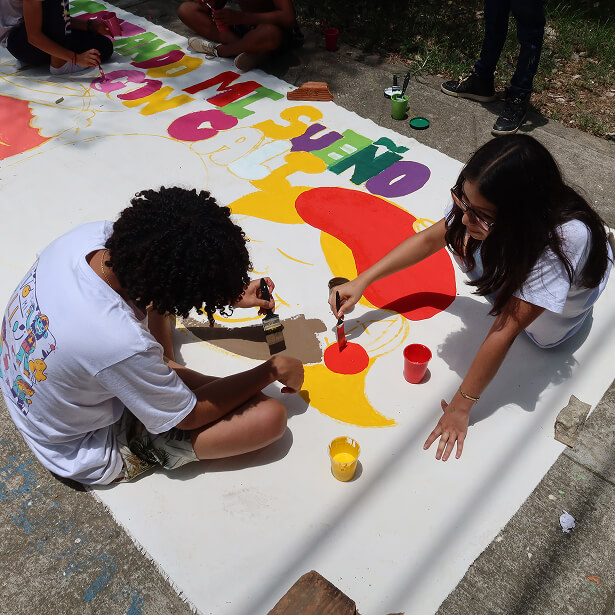Vivo Mi Calle (Phase 2)
In Colombia’s cities, poverty and limited opportunities make adolescents vulnerable to crime and gang recruitment. The lack of safe, healthy public spaces for recreation, creativity and social connections exacerbates the situation. Vivo Mi Calle focuses on the neighbouring cities of Cali and Palmira, in Valle del Cauca, located in the south of the country.
Within these two cities, the project targets the communities of Potrero Grande in Cali and Caimitos in Palmira. Potrero Grande, located in Commune 21, is a densely populated neighbourhood with high levels of poverty, insecurity and restricted access to education, healthcare and employment. Home to a significant Afro-descendant and displaced population, it struggles with gang violence and underreported crimes. Similarly, Caimitos in Palmira faces socio-economic vulnerability, gender-based violence and inadequate public infrastructure. Despite having green spaces and sports facilities, safety concerns limit their use and community engagement.

Quick facts
Country: colombia
Cities: Cali, Palmira
Project Timeline
01/05/2025
Project Consortium
Fundación Despacio (Lead Partner)
World Resources Institute
About the project
Vivo Mi Calle was launched in May 2019 through a grant under HCA-I. In 2022, the project secured new funding under HCA-II to expand its impact, sustain progress in existing intervention sites and engage more adolescents in shaping public policy. The initiative focuses on improving public spaces for and with adolescents in vulnerable urban neighbourhoods and promoting physical activity, safety and gender equity.
Key interventions
Youth leadership training
Educating adolescents on healthy cities concepts while strengthening their leadership and communication skills.
Participatory urban interventions
Co-designing solutions with adolescents and local communities to enhance public spaces and promote their use through sports, dance and creative activities.
Advocacy and social mobilisation
Providing communication training, awareness campaigns, webinars and technical assistance to strengthen collaboration between youth, communities and local authorities in transforming public spaces and promoting healthier cities.

Project consortium and partnerships
The project consortium is led by Fundación Despacio a Colombian non-governmental organisation focused on urban quality of life, in collaboration with the World Resources Institute (WRI)- Colombia, which specialises in environmental conservation, economic opportunity and human wellbeing, and EAFIT University in Medellín, serving as the project’s monitoring, evaluation and learning partner.
At the city level, the project is implemented through Tecnocentro in Cali and Fundación SIDOC in Palmira, working closely with local government agencies, schools and communities to foster long-term impact and sustainability.
